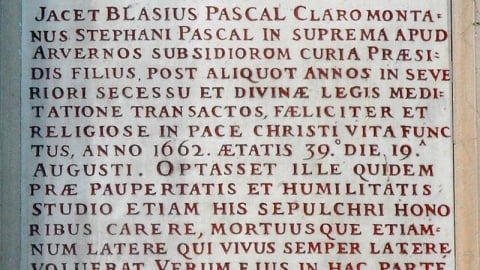Labor Day: What Should Catholics Think?

Are Catholics to think warmly of Capitalism? Can wages be determined by business owners at will? Pope Leo XIII gave the answers 125 years ago:
With the civil holiday Labor Day (September 5) fast approaching, it would behoove Catholics to spend some time with Pope Leo XIII’s great social encyclical, Rerum Novarum. Published 125 years ago, Rerum Novarum spells out the rights and duties of both capital and labor which, regrettably, are often ignored in the current economic order. Leo XIII, sensing the revolutionary changes which had torn apart the traditional economic order and left the working classes in a state of near-slavery, felt compelled to speak authoritatively on the matter despite the opinion of some that the Church has no business intervening in socio-economic affairs (paragraphs 2 and 3):
Therefore, venerable brethren, as on former occasions when it seemed opportune to refute false teaching, We have addressed you in the interests of the Church and of the common weal, and have issued letters bearing on political power, human liberty, the Christian constitution of the State, and like matters, so have We thought it expedient now to speak on the condition of the working classes. It is a subject on which We have already touched more than once, incidentally. But in the present letter, the responsibility of the apostolic office urges Us to treat the question of set purpose and in detail, in order that no misapprehension may exist as to the principles which truth and justice dictate for its settlement. The discussion is not easy, nor is it void of danger. It is no easy matter to define the relative rights and mutual duties of the rich and of the poor, of capital and of labor. And the danger lies in this, that crafty agitators are intent on making use of these differences of opinion to pervert men's judgments and to stir up the people to revolt.
In any case we clearly see, and on this there is general agreement, that some opportune remedy must be found quickly for the misery and wretchedness pressing so unjustly on the majority of the working class: for the ancient workingmen's guilds were abolished in the last century, and no other protective organization took their place. Public institutions and the laws set aside the ancient religion. Hence, by degrees it has come to pass that working men have been surrendered, isolated and helpless, to the hardheartedness of employers and the greed of unchecked competition. The mischief has been increased by rapacious usury, which, although more than once condemned by the Church, is nevertheless, under a different guise, but with like injustice, still practiced by covetous and grasping men. To this must be added that the hiring of labor and the conduct of trade are concentrated in the hands of comparatively few; so that a small number of very rich men have been able to lay upon the teeming masses of the laboring poor a yoke little better than that of slavery itself."
It is clear from these words, and the remaining paragraphs of Rerum Novarum, that the Church in no way, shape, or form wishes to endorse the revolutionary socialism which had rocked Europe throughout the 19th Century. At the same time, Leo XIII gives no sanctuary to unrestrained, free-market capitalism, the sort which is sometimes upheld by misguided Catholics enchanted by the tenets of libertarian ideology. For while economic liberals believe that it is “natural” and “just” that workers’ wages ought to be established by the marketplace, Rerum Novarum contains a different teaching.
In paragraph 34, Leo XIII acknowledges the liberal conception that wages “are fixed by free consent; and therefore the employer when he pays what was agreed upon, has done his part is not called upon for anything further.” “This mode of reasoning,” according to the Pope, “is by no means convincing to a fair-minded man, for there are other important considerations which it leaves out of view altogether.” These considerations include, but are not necessarily limited to, a man deriving enough wages from his work to support himself and his family while also building-up enough savings to purchase his own property (paragraphs 44 and 45). Indeed, Leo XIII refers to this as “a dictate of natural justice,” that is, a principle which holds universally true across all times, places, and economic cultures. Although workers’ wages may vary according to the nature of their profession, experience, and other relevant factors, it is clear from Rerum Novarum that all in society must adhere to a just “base floor” for settings wages rather than market prices alone.
Elsewhere in Rerum Novarum, Leo XIII upholds the Church’s teaching on the right to private property and encourages greater cooperation between social classes. In other words, the text makes clear that the elimination of private property—one of the express aims of socialism—is not congruent with either divine or natural law. Further, Leo XIII, in his wisdom, does not wish for the Church’s magisterium to be leveraged by revolutionary forces. While it is true that grave economic injustices are to be found throughout the world, the aim of both the Church and civil society should be to see those wrongs rectified without reliance on express class conflict or violence.
Here are the Pope’s own words (paragraph 19):
The great mistake made in regard to the matter now under consideration is to take up with the notion that class is naturally hostile to class, and that the wealthy and the working men are intended by nature to live in mutual conflict. So irrational and so false is this view that the direct contrary is the truth. Just as the symmetry of the human frame is the result of the suitable arrangement of the different parts of the body, so in a State is it ordained by nature that these two classes should dwell in harmony and agreement, so as to maintain the balance of the body politic. Each needs the other: capital cannot do without labor, nor labor without capital. Mutual agreement results in the beauty of good order, while perpetual conflict necessarily produces confusion and savage barbarity. Now, in preventing such strife as this, and in uprooting it, the efficacy of Christian institutions is marvelous and manifold. First of all, there is no intermediary more powerful than religion (whereof the Church is the interpreter and guardian) in drawing the rich and the working class together, by reminding each of its duties to the other, and especially of the obligations of justice."
Today, well more than a century after Rerum Novarum’s promulgation, we can see with great sorrow just how far away the world is from embracing Leo XIII’s teaching. Radical economic inequality coupled with dislocating shocks to the marketplace brought on by unchecked greed and material excess continue to leave millions of persons, even in America, under the thumb of usurious lending, depressed wages, and politicians seeking to harness economic discontent for their own worldly aims.
Although God has not promised man an “earthly paradise” where every social and economic ill can be cured, He has left us the Church and her magisterium to guide us on our pilgrimage to Heaven. It should come as no surprise then that the further society moves away from those teachings, particularly the social rights of Christ the King, the worse off it will become, not just materially, but morally and spiritually as well. Let us pray for the day when politicians, capitalists, and laborers draw closer to the teachings contained in Rerum Novarum and that the economic sphere is once again guided by the dictates of justice rather than the forces of avarice.
An interview with Traditional Catholic Businessmen - "The Angelus"





